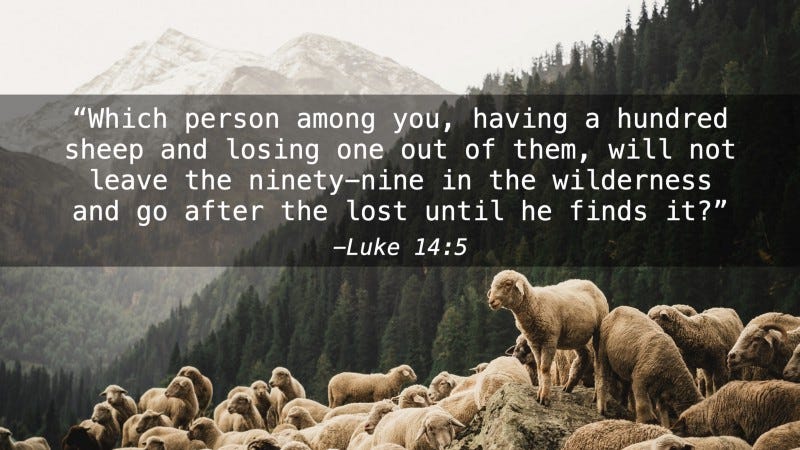Trying to Understand the 99 Sheep Left Behind
Imagine for a moment that you are a sheep. And throughout your entire bleating existence you’ve been accustomed to a certain way of life.

Photo by Dibya Jyoti Ghosh on Unsplash
Imagine for a moment that you are a sheep. And throughout your entire bleating existence you’ve been accustomed to a certain way of life.
You’re cared for intimat…



